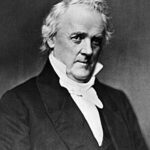The Buchanan Dred Scott Decision Crisis
President James Buchanan secretly coordinated with Supreme Court justices before their infamous ruling. The Buchanan Dred Scott Decision became one of America’s most controversial presidential endorsements. ⚖️ Buchanan privately pressured Justice Robert Grier to join the majority opinion. This behind-the-scenes manipulation violated separation of powers principles.
Supreme Court Coordination
Justice John Catron wrote Buchanan about the court’s deliberations in February 1857. Buchanan then contacted Justice Grier to ensure a broader ruling. The president wanted the court to settle the slavery question definitively. This secret communication compromised judicial independence before the decision was announced.
Public Endorsement Strategy
Buchanan’s inaugural address praised the upcoming Supreme Court decision two days early. He urged Americans to accept whatever ruling the court would make. 📜 The president presented himself as neutral while knowing the outcome. This deceptive stance damaged public trust in both executive and judicial branches. His endorsement gave presidential legitimacy to the court’s pro-slavery conclusions.
Impact:
Immediate Political Consequences
The Buchanan Dred Scott Decision endorsement sparked immediate Republican outrage across the North. Abraham Lincoln condemned the ruling during his famous House Divided speech. 🔥 Northern newspapers accused Buchanan of conspiring with pro-slavery justices. The decision declared African Americans could never become citizens under the Constitution. This ruling invalidated the Missouri Compromise and territorial restrictions on slavery.
Sectional Crisis Deepened
Buchanan’s endorsement accelerated the nation’s march toward civil war. Northern states began passing personal liberty laws to resist federal authority. Southern leaders demanded federal protection for slavery in all territories. The decision eliminated middle-ground compromises on slavery expansion. 📉 Republican Party membership surged as moderate voters rejected Democratic positions.
Constitutional Damage
The president’s secret coordination with justices violated constitutional principles permanently. Public confidence in Supreme Court impartiality plummeted after the revelation. Future presidents would face scrutiny over judicial communications. 🌍 International observers criticized America’s commitment to equal justice under law. The decision’s reasoning was so flawed that it required constitutional amendments to overturn completely.
